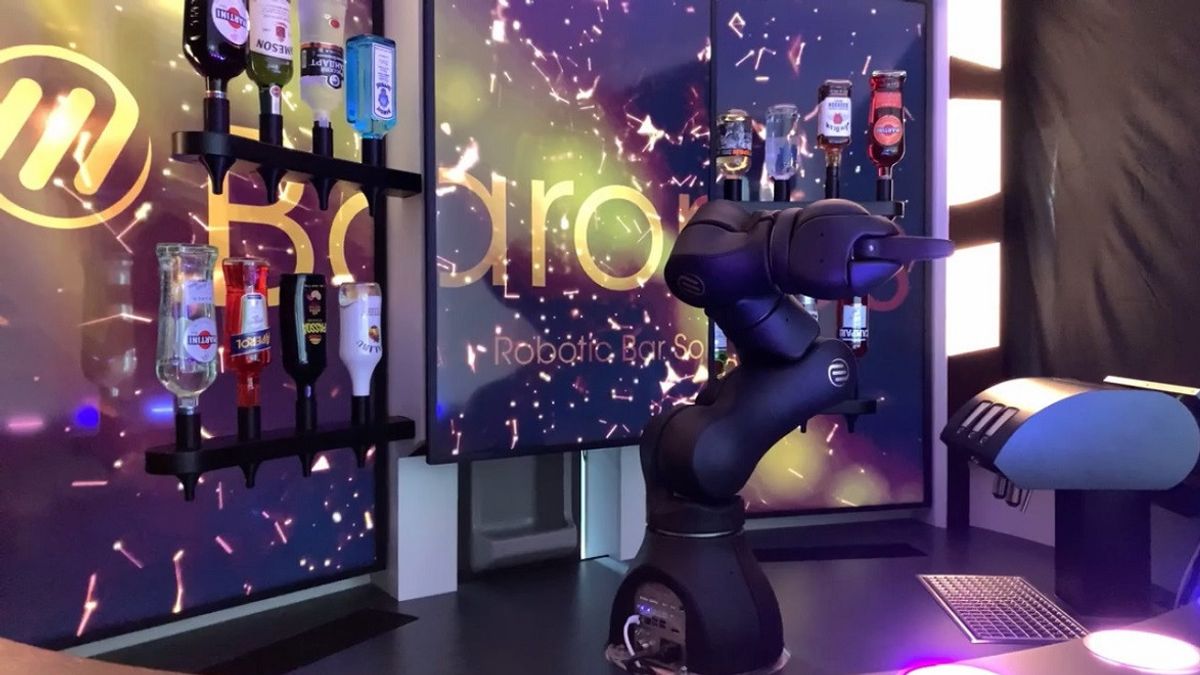JAKARTA - The COVID-19 pandemic does not always have a negative impact. Many positive things have come during the pandemic, such as technology that reduces human contact in the interaction of daily needs.
One of them is the growing development of robot technology in the food & beverage business, for example in cafes. During this pandemic, a number of robots were 'shown' to serve visitors from restaurants to bars. Take Barney, for example.
According to Reuters, Barney was developed by F&P Robotics to become a 'prima' in hotels, bars and shopping malls, in line with the trend to reduce human contact during and after the pandemic.
Barney can mix 16 different alcoholic drinks and 8 different sodas for customers to order on their phones, and offers beer and prosecco. When the order is ready, it will notify you via a large video display above the bar.

In addition to the barista to mix cocktails, the developer also makes a coffee barista version. Both versions can be filled with conversation, so Barney can make a 'joke' about the offer for a role in the latest 'Terminator' film, for example. Interestingly, Barney can also disinfect his own robotic arm.
"Initially we got a little bit of interest. We thought Barney could be a fun attraction, could bring people to the bar because he's constantly moving and so different," said Chief Sales Officer Gery Colombo.
Colombo said that the restaurants and hotels that were originally targeted for Barney's glance, initially were far from expectations due to the pandemic crisis. The price of each model reaches around 130,719 US dollars. Now, the situation is slowly changing.

"Our number of requests has doubled compared to last year. This can certainly be an advantage for customers who want a bartender who can work 24 hours a day, can serve drinks that customers want while reducing human contact," said Colombo.
The Zurich company, which makes the robot and its operating software, has so far sold the robot to China and Oman, where a mocktail-making robot works in a shopping mall.
Other companies in Europe and Asia are also working on robot bartenders, but it's unclear if they will eventually replace human bartenders.
"We can't say what the gastronomic industry will look like in a few years, but we believe robotics will play a role," Colombo said.
The English, Chinese, Japanese, Arabic, and French versions are automatically generated by the AI. So there may still be inaccuracies in translating, please always see Indonesian as our main language. (system supported by DigitalSiber.id)








